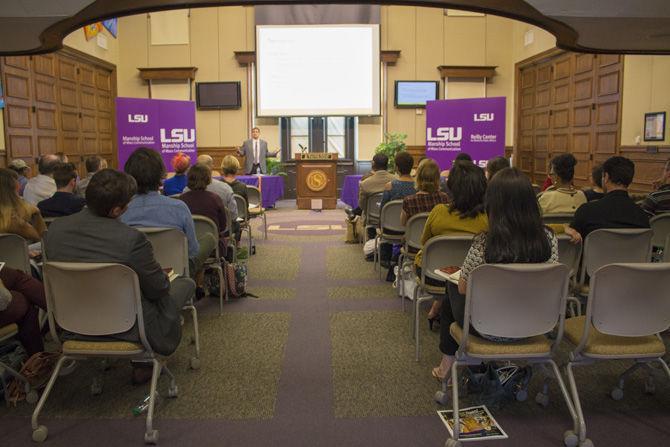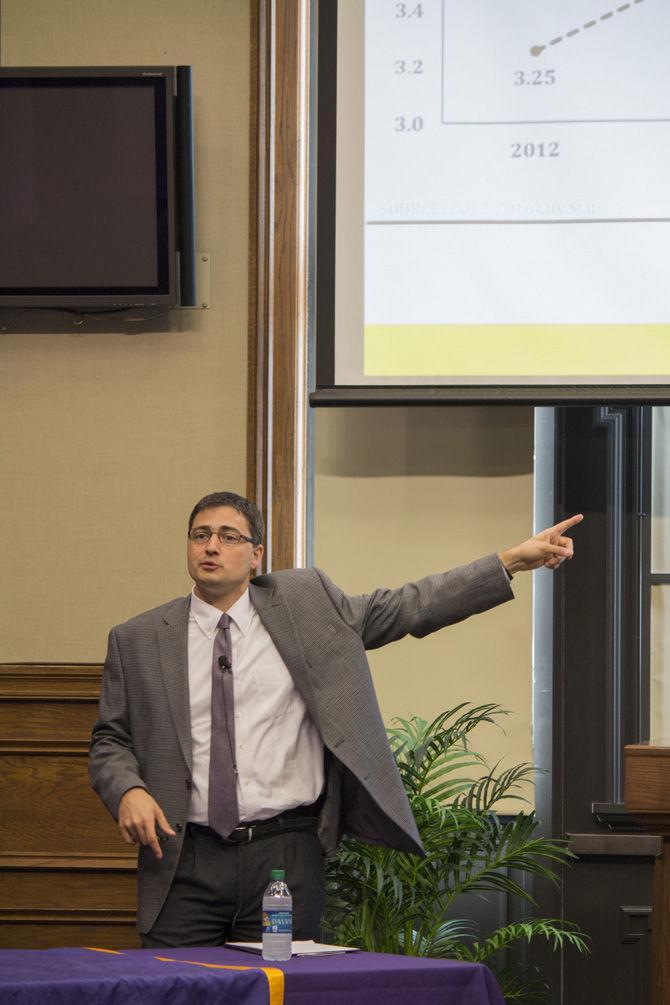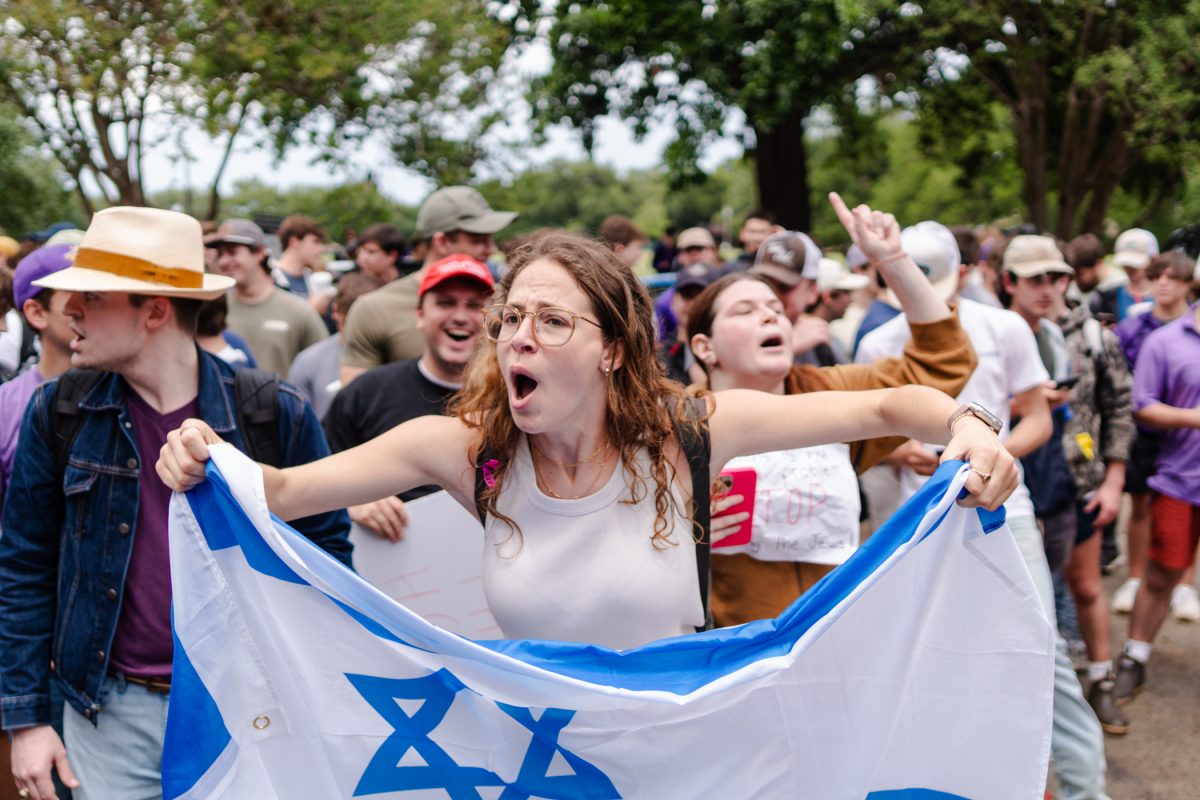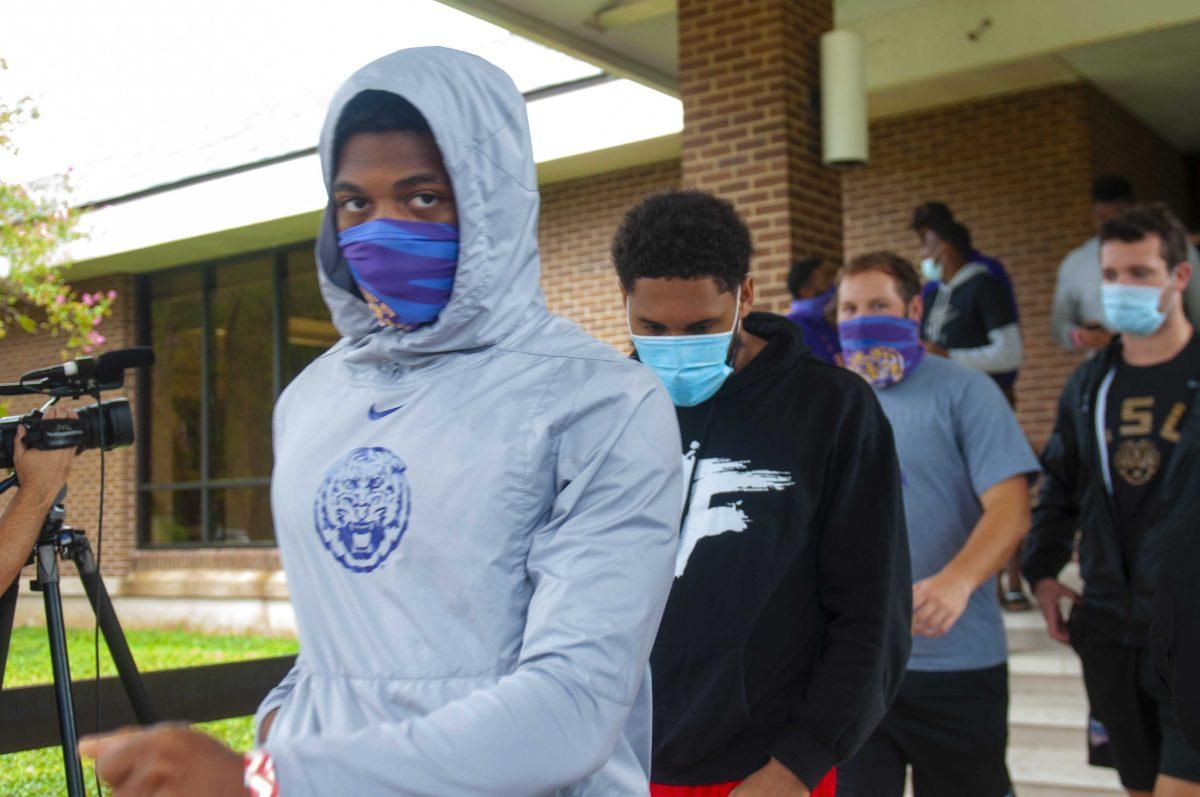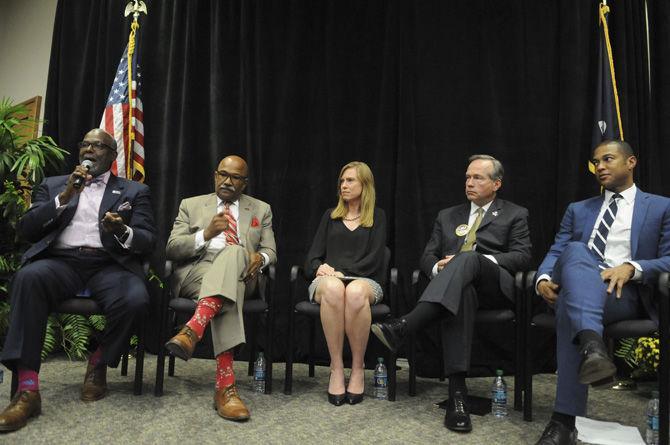Professors from the University’s Manship School of Mass Communication detailed the stark difference in opinions toward law enforcement officers from white and black people to a packed Holliday Forum of the school’s Journalism Building on Monday.
The panel was part of LSU’s “Moment or Movement: A National Dialogue on Identity, Empowerment and Justice for All” presidential symposium — a two-day event about race relations and the importance of democracy.
The first day of the symposium also included a speech on the history of Louisiana race relations by Law Professor Chris Tyson and panels including Louisiana business leaders and government officials.
Mass communication professors Martin Johnson and Michael Henderson kicked off the late afternoon sessions with a talk on public opinion of race relations and law enforcement in Louisiana.
Henderson, the research director of the LSU Public Policy Research Lab, presented survey results from black and white respondents on a variety of questions. According to the Louisiana Survey and City Stats prior to the 2016 summer, black respondent’s opinions of law enforcement differed greatly from white respondents.
On a scale from one to five, black respondents rated law enforcement 0.32 lower than white respondents. In 2016, white respondents gave law enforcement an average score of 3.91, while black respondents gave a 3.59.
The biggest gap since 2012 was in 2015 when white people rated police 3.83 and blacks rated 3.20. It was the same year Michael Brown was killed by police in Ferguson, Missouri.
Nearly 50 percent of black respondents said they have “just some” or “very little” confidence in local police, and more than 50 percent said they had just some or very little confidence in police not using excessive force.
“That’s not just chance from having a random sample in a survey,” Henderson said. “That is a real difference.”
The results were similar when black respondents were asked if law enforcement officers treat black and white people equally. The results for white respondents were lower across the board, with around 25 percent falling into the “just some” or “very little” categories for the polls.
Nathan Kalmoe, a mass communication and political science professor, compared Louisiana’s numbers to national figures gathered by the Pew Research Center.
In terms of opinions of police, Louisiana’s results were similar to national statistics. Nationally, only 14 percent of black people had a lot of confidence in police, compared to 42 percent of white respondents, Kalmoe said.
Kalmoe said there are also big partisan divides on the issue nationally. According to Kalmoe, 57 percent of Hillary Clinton supporters say it is harder to be black than white in America, compared to 11 percent of Donald Trump supporters.
“I’m glad we’re focused on individual views about institutions in particular because solutions to many of these problems require more than changing personal attitudes,” Kalmoe said. “The lack of institutional change may be caused by the large block of people who have relatively neutral attitudes … rather than those who actively seek to maintain the old ways.”
Belinda Davis, the associate director of the Public Policy Research Lab, said that while East Baton Rouge Parish is about 50/50 white and black, there are big differences in income distribution.
Davis said about 11 percent of white individuals live in poverty, compared to about 30 percent for African Americans. The median income for an African-American family is around $41,000 in East Baton Rouge Parish, while white families sit at $89,000.
“The results that we saw about satisfaction from the public across the races in terms of services provided by the police department did not surprise me,” Davis said. “Many of them are living in low-status communities, and that influences how they react with our police department.”
Aside from race relations, a portion of the symposium is dedicated to “exploring the intersection of politics, identity and the democratic process,” according to a news release about the event. Henderson touched on that crossroads and pressed the importance of public opinion in policy making, regardless of the political system.
“At the end of the day, the will of the people is a force, a potential force to be understood,” Henderson said.
LSU professors talk race relations, public opinion in symposium panel
October 3, 2016
Director of LSU Public Policy Research Center, Michael Henderson presents Public Opinion about Race Relations and Law Enforcement in Louisiana on Monday, October 3, 2016, in the Journalism Building on campus.
More to Discover



